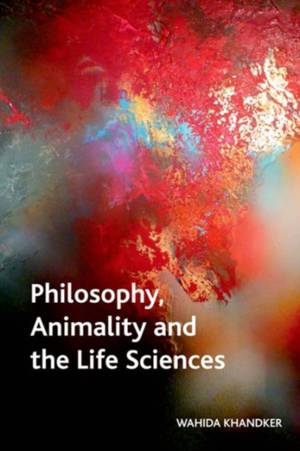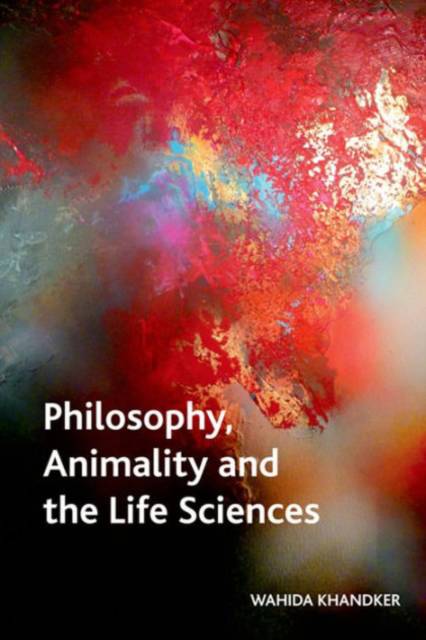
- Afhalen na 1 uur in een winkel met voorraad
- Gratis thuislevering in België vanaf € 30
- Ruim aanbod met 7 miljoen producten
- Afhalen na 1 uur in een winkel met voorraad
- Gratis thuislevering in België vanaf € 30
- Ruim aanbod met 7 miljoen producten
Zoeken
Philosophy, Animality and the Life Sciences
Wahida (Senior Lecturer, Manchester Metropolitan University) Kha
€ 155,95
+ 311 punten
Omschrijving
Uses a concept of 'pathological life', and the work of thinkers from Bergson to Haraway, in order to understand organic life and question the use of non-human animals in scientific experiments.
Specificaties
Betrokkenen
- Auteur(s):
- Uitgeverij:
Inhoud
- Aantal bladzijden:
- 168
- Reeks:
Eigenschappen
- Productcode (EAN):
- 9780748676774
- Verschijningsdatum:
- 21/07/2014
- Uitvoering:
- Hardcover
- Afmetingen:
- 170 mm x 245 mm
- Gewicht:
- 406 g

Alleen bij Standaard Boekhandel
+ 311 punten op je klantenkaart van Standaard Boekhandel
Beoordelingen
We publiceren alleen reviews die voldoen aan de voorwaarden voor reviews. Bekijk onze voorwaarden voor reviews.







